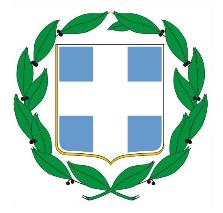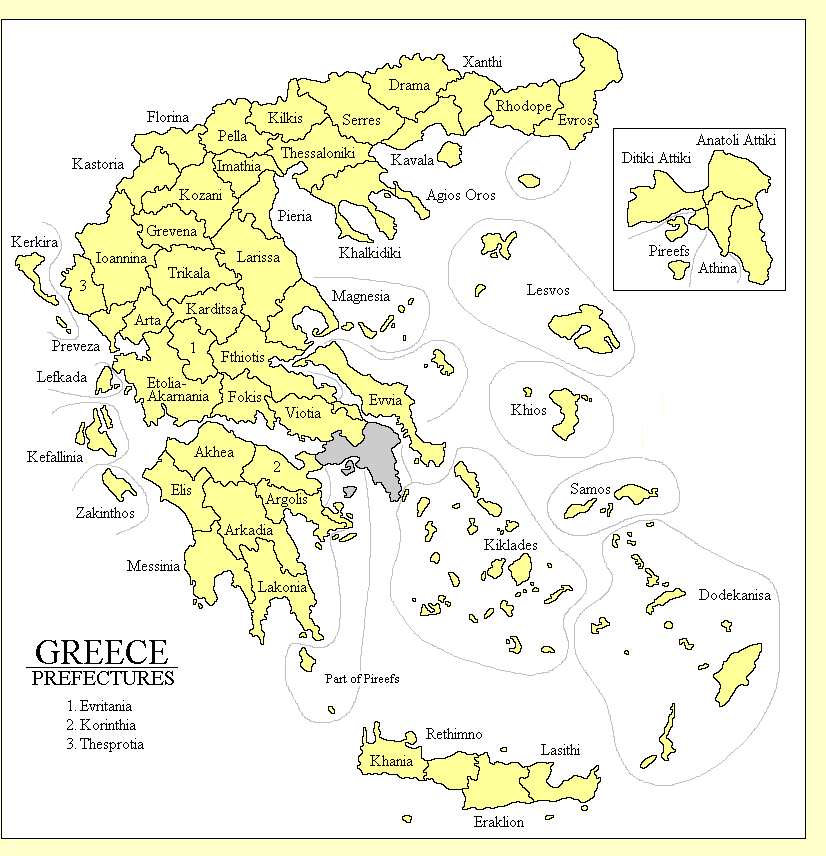

GREEK REPUBLIC
• Official name: Elliniki Dhimokratia (Greek Republic)
• Location: South Eastern Europe
• International organisations: Council of Europe, European Union, North Atlantic Treaty Organisation,
Organisation for Economic Co-operation and Development, Organisation for Security and Co-operation in Europe,
United Nations, Western European Union, World Trade Organisation
• Borders: Albania, Bulgaria, Macedonia, Turkey
• Coastline: Aegean Sea, Ionian Sea, Mediterranean Sea
• Land area: 131,940 Km2
• Population: 11,300,000
• Annual GDP (PPP) per capita: US$32,100 (2009 CIA estimate). World ranking: 30
• Ethnicity: Over 95% of the population is Greek. There are small Turkish, Slav Macedonian and Albanian minorities in the north.
• Languages: Greek is the official language and is almost universally used. Turkish, South Slav and Albanian languages
are spoken in some border areas.
• Religion: Almost the whole population are at least nominally Orthodox Christian. The Greek Orthodox Church enjoys
certain legal privileges. The monastic community of Mount Athos enjoys legal autonomy. Some of the islands are
Catholic. There is a small Moslem minority.
• Form of government: Parliamentary democratic republic. Greece is divided into 51 prefectures and the Mount Athos
autonomous region.

• Capital: Athens (Athinai)
• Constitution: The Constitution of the Greek Republic came into effect on 11 June 1975.
• Head of state: The President, elected by the legislature for a five-year term. The President's functions are largely
ceremonial. Karolos Papoulias was elected President in February 2005.
• Head of government: The Prime Minister, appointed by the President. The Prime Minister is the leader of the largest party in the legislature and is accountable to it.
• Legislature: Greece has a unicameral legislature, the Parliament of the Greeks (Vouli ton Ellinon), which has 300 members, elected for four-year terms from single- and multi-seat constituencies.
• Electoral authority: The Elections Division of the Interior Ministry administers national elections.
• Freedom House 2011 rating: Political Rights 1, Civil Liberties 2
• Transparency International Corruption Index: 35% (78 of 178 countries rated)
• Reporters Without Borders Press Freedom 2010 Index: 81% (70 of 178 countries rated)
• Heritage Foundation Economic Freedom 2010 Index: 60.3% (88 of 179 countries rated)
Political history
The area which is now Greece came under the rule of the Ottoman Empire in the 15th century. In 1821 a revolt against
Ottoman rule broke out and Greece was recognised as an independent state in 1830. The crusading liberal Eleftherios Venezelos
became Prime Minister in 1910, and under his leadership Greece joined
World War I on the Allied side in the hope of securing more territory, including Constantinople, from the Ottomans. The
Treaty of Sevres gave Greece East Thrace and territory around Smyrna, but the Greeks were routed by the Turkish nationalists.
This debacle led to the fall of the monarchy and the establishment of a republic in 1925.
The monarchy was restored in 1935 and King George II allowed General Ioannis Metaxas to establish a dictatorship.
In 1941 Greece was invaded and occupied by Germany, and during the occupation a powerful Communist-dominated resistance
movement developed. When the Germans withdrew in 1944, the Communists attempted to take power, but were prevented by
British troops. The resulting bitter civil war lasted until 1949.

Greece was governed by conservatives until a liberal government under George
Panandreou was elected in 1963. In 1967 there was a right-wing army coup, and the military regime held power until 1974,
when a crisis over Cyprus brought its downfall. With democracy restored in the land of its birth, the monarchy was
abolished by referendum, and Greece has enjoyed political stability since. Greece joined the European Union in 1981 and
has become increasingly prosperous, although wasteful spending by successive governments has produced a crisis of debt.
Greek politics are heavily dynastic, and have been notorious for decades for corruption and nepotism. Since 1974
they have been dominated by bitter rivalry between the
left-wing Pan-Hellenic Socialist Movement or PASOK,
led for many years by the colourful Andreas Papandreou and now by his son George, and the conservative
New Democracy (ND). Minor parties include
the Communist Party of Greece, the left-wing
Coalition of the Left and Progress, and the right-wing
Popular Orthodox Rally. In the March 2004 elections PASOK was defeated
by ND after eleven years in power, with ND's Kostas Karamanlis becoming Prime Minister. Karamanlis was narrowly re-elected
in 2007. In 2009, faced with a deteriorating economy and widespread social unrest and rioting, he called snap elections and
was defeated by PASOK. George Papandreou, son and grandson of Greek Prime Ministers, formed a government to deal with the
grave economic crisis facing the country. But the 2011 debt crisis proved too much for Papandreou's government, and a
combination of pressure from the EU and treachery within his own party forced his resignation in November. The President
then brokered the formation of a non-party government under the Vice President of the European Central Bank,
Loukas Papadimos. Fresh elections are expected in 2012.
Freedom House's 2011
report on Greece
says: "Greece is an electoral democracy... The country has generally fair electoral laws, equal campaigning opportunities,
and a system of compulsory voting that is weakly enforced... Corruption remains a problem, particularly within the police
forces... The constitution includes provisions for freedom of speech and the press, and citizens have access to a broad
array of privately owned print and broadcast outlets... Freedom of religion is guaranteed by the constitution, though the
Orthodox Church receives government subsidies and is considered the "prevailing" denomination of the country...
Freedoms of assembly and association are guaranteed by the constitution and generally protected by the government...
Despite government efforts to combat it, racial intolerance is pervasive in society and is often expressed by public figures...
Immigrants are disproportionately affected by institutional problems in the judicial system."
Updated November 2011
|


